Fuseproject designs "world's first" portable solid-state power station
Designer Yves Béhar's studio Fuseproject has created a family of portable power stations with accompanying solar panels for US start-up Yoshino, utilising ultra-efficient solid-state batteries.
Californian firm Yoshino set out to disrupt the portable charging market by introducing the latest SSB tech, which is made using solid instead of liquid electrolytes and can provide twice the amount of energy in half the weight compared with standard lithium-ion batteries.
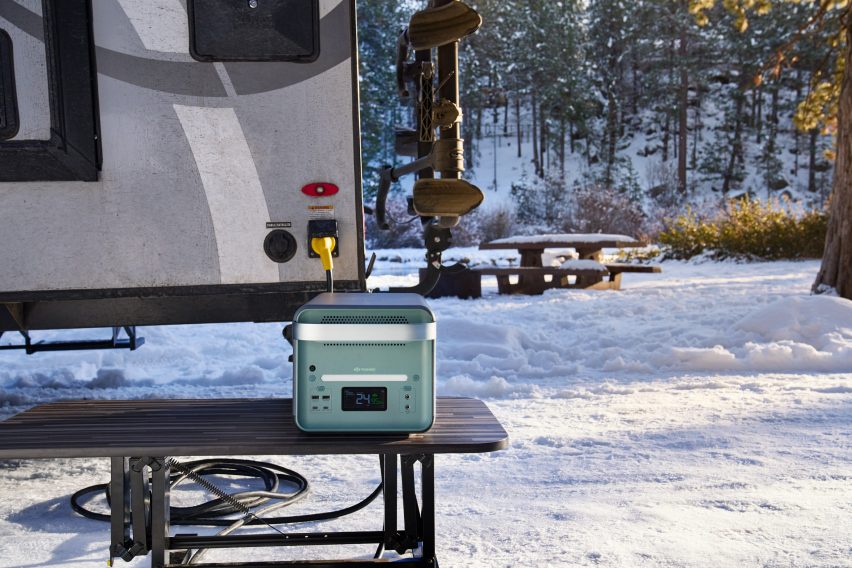
Béhar's San Francisco-based studio was tasked with overseeing the industrial design, user interface, brand identity and packaging design for the power station, which comes in four different sizes, as well as a series of folding solar panels with which it can be charged.
Fuseproject's design aimed to redefine what a battery power station brand could be, reflecting Yoshino's positioning as a green energy company that is hoping to provide a powerful alternative to fossil-powered generators.
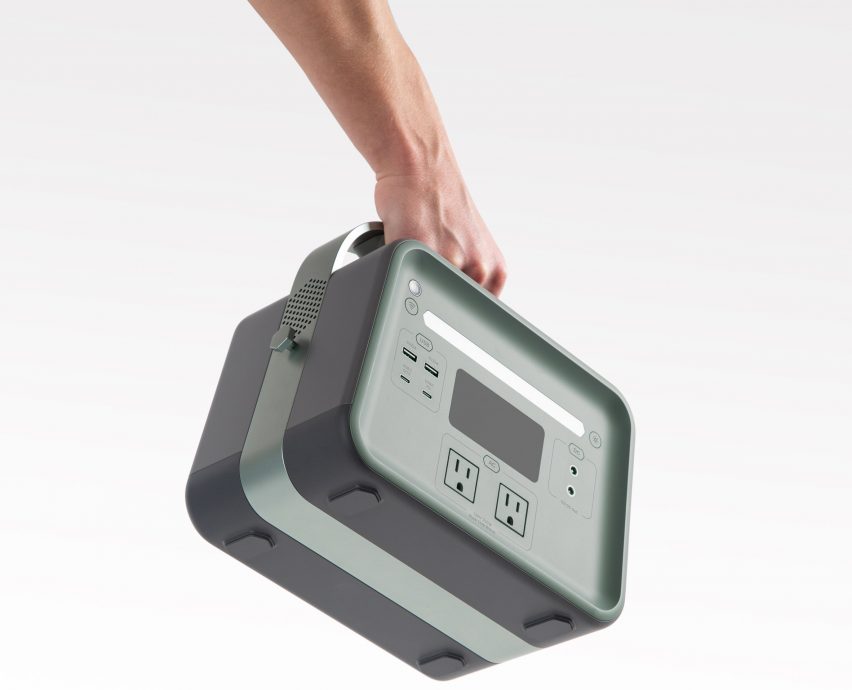
"A new tech advance such as this new type of battery needs a design that expresses technical leadership while demonstrating the many use cases it solves in people's everyday lives, whether it's for working on an outdoor project or construction, or a weekend trip," Béhar told Dezeen.
Yoshino says its product is the "world's first solid-state portable power station", delivering up to 2.5 times the energy density of standard lithium-ion batteries so it can be used in contexts such as camping trips or even as a back-up generator for the home.
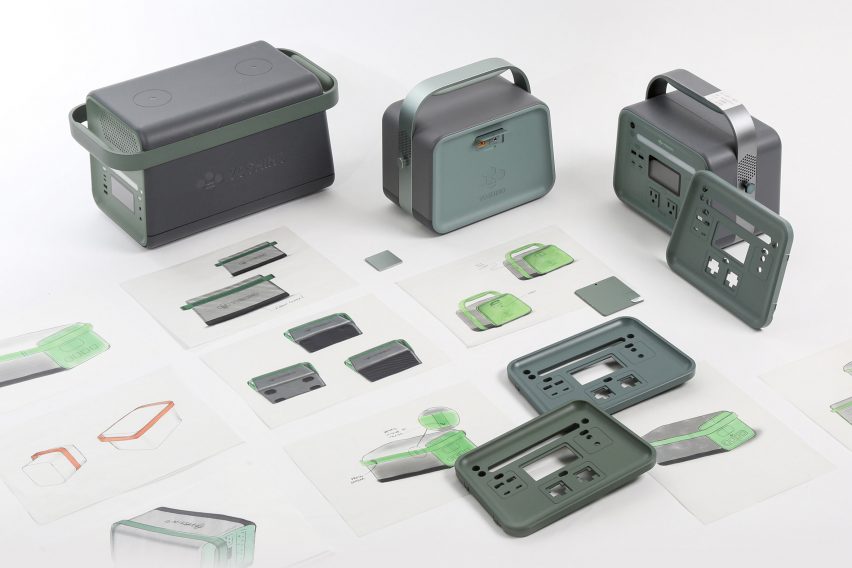
This focus on everyday users prompted Fuseproject to pursue a more lifestyle-oriented approach with a muted colour palette and comfortable handles, rejecting the masculine and technical associations that typically define products like generators.
"We achieved a softer look for these products by stepping away from the often black and bright colour accent approach that is quite common," the designer said. "Instead, we used tonal variations of greens and greys."

"For the whole product line, we also designed comfortable built-in handles to make them more portable and protected," he added.
The sleek and strong metal handle forms a design signature that recurs across the product range. Its ergonomic form makes it easy to pick up and move the battery stations, emphasising their lightness and portability.
Each product features a dynamic, angular form intended to enhance its stability and communicate the concept of power. A shatterproof and water-resistant interface with gently rounded corners extends the products' cohesive aesthetic.
Another recurring motif is the hexagon shape that appears in the venting ports, carrying-strap attachments, base pads and the design of the user interface. This form was inspired by bees as "a symbol of nature, hard work and non-stop energy", according to the studio.
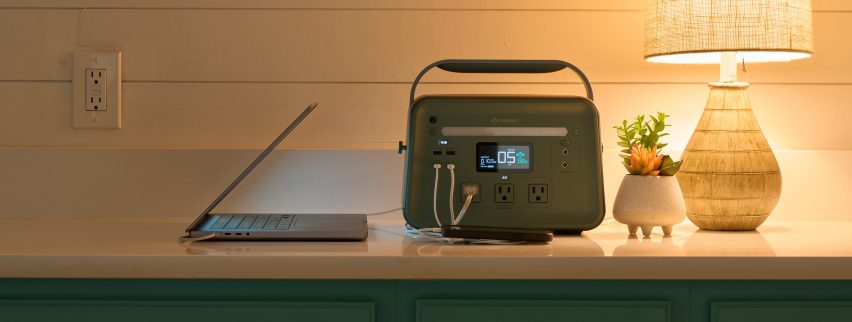
Fuseproject opted for a subtle colour palette that expresses green energy and aligns with other products designed for outdoor recreation.
The battery stations feature AC, DC and USB outlets to power gadgets and devices on the go. Wireless charging pads on the top surface offer an alternative option for charging phones and tablets.
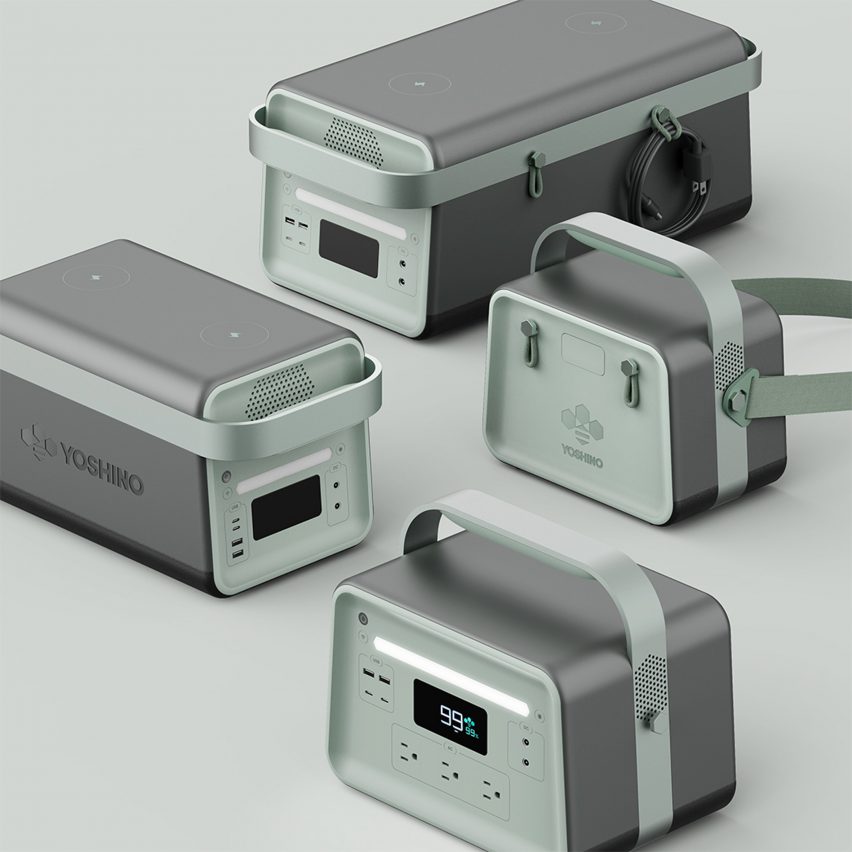
The power station comes in four different sizes, with the smallest delivering 330 watts of power while the largest provides 4,000 watts and includes a 30-amp RV outlet for recreational use.
Yoshino has also developed a range of portable solar panels that can be used to charge its power stations, providing a sustainable and reliable source of energy.
The new design language extends to a dedicated app that allows users to check their power station's status, charge levels, runtime and settings from their phone screen.
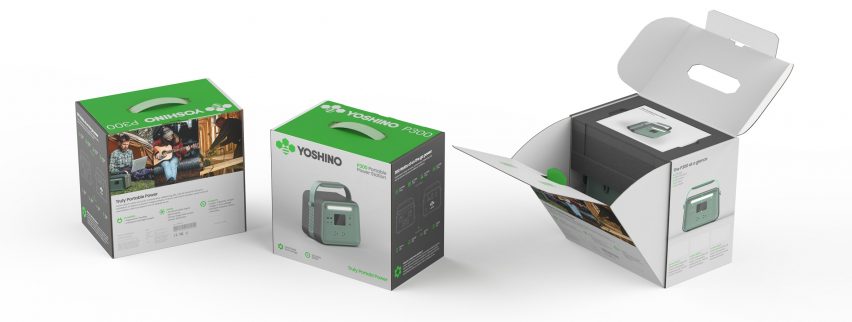
Yves Béhar founded Fuseproject in 1999. Since then, the multidisciplinary studio has designed innovative projects including the Cionic Neural Sleeve – a bionic wearable that uses electric pulses and artificial intelligence to correct muscle movements in people with limited mobility – which was named design project of the year at the 2023 Dezeen Awards.
The studio also designed the Frame TV for Samsung, which looks like a framed artwork when not in use, and partnered with robotics company Cobalt to create an unthreatening design for its security robot.